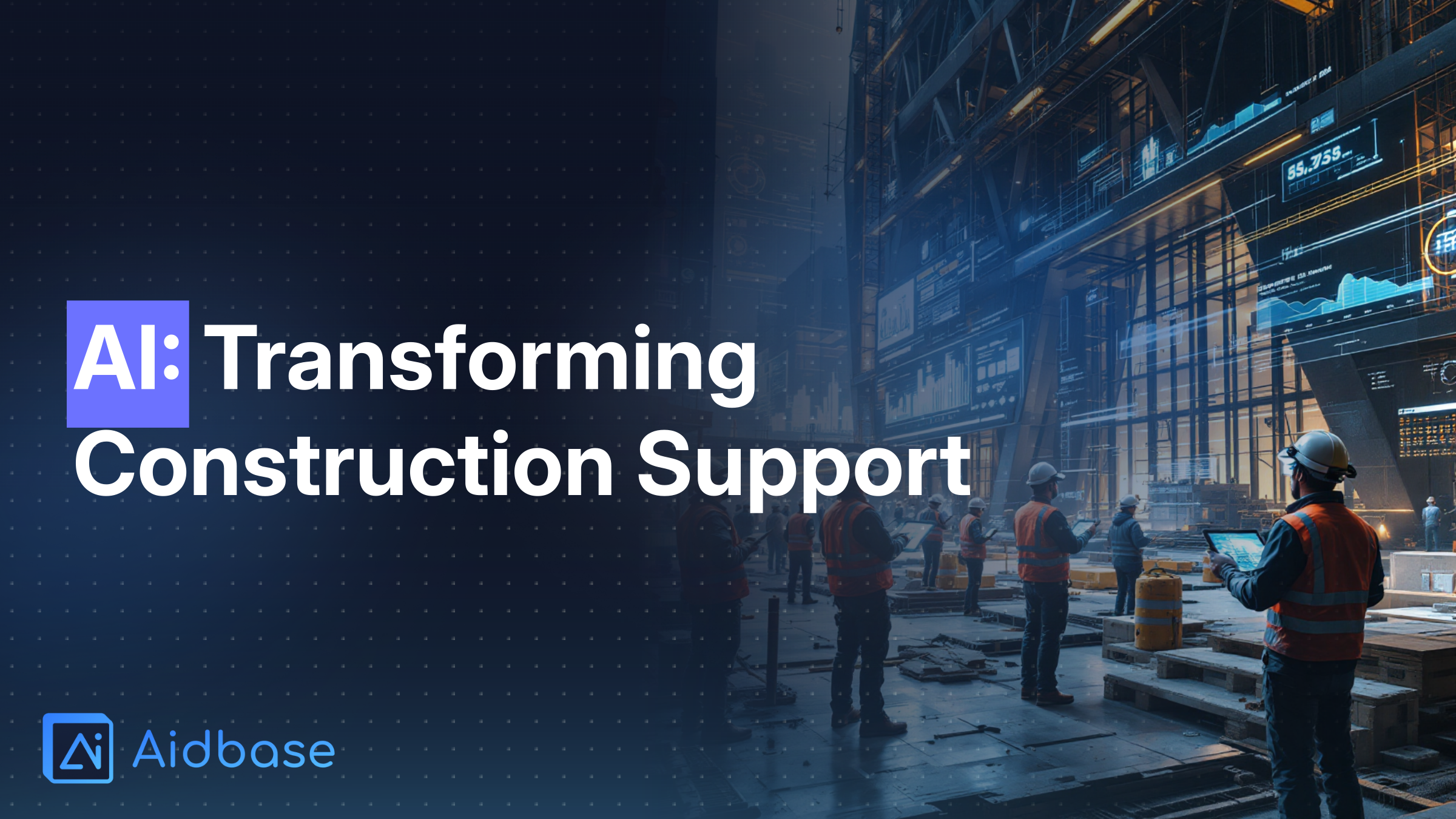In the competitive construction industry, companies are increasingly adopti...

In today's competitive construction industry, companies are increasingly turning to AI to transform customer support and enhance client relationships. The integration of AI-driven tools—from voice assistants that streamline documentation to real-time project management systems—addresses longstanding challenges such as communication barriers, labor shortages, and project transparency. Let’s explore how these innovations are building a stronger foundation for client satisfaction in construction.
The construction sector has traditionally relied on manual processes and in-person meetings, often creating gaps in communication and project transparency. With the introduction of AI, these challenges are being overcome with digital solutions that:
AI not only speeds up routine activities but also offers powerful insights through data analytics. For instance, by processing vast amounts of information from IoT sensors, project management software, and customer feedback, AI tools help construction companies predict and mitigate potential project risks. This early intervention ensures projects are completed on time and within budget, ultimately building trust between builders and their clients.
Communication lies at the heart of client satisfaction, and AI is revolutionizing how information is exchanged in construction projects. AI-powered chatbots and virtual assistants serve as instant points of contact for clients and field teams alike by:
For example, when a construction project encounters delays or changes in scope, real-time updates from AI systems ensure that clients are kept in the loop. This level of responsiveness significantly minimizes misunderstandings and builds confidence. Recent insights on platforms like NexposAI highlight how AI-driven communication tools are streamlining these processes and transforming customer support in the industry (NexposAI).
Accurate and timely documentation is crucial in construction, yet manual record keeping is often time-consuming and error-prone. AI-powered voice assistants are emerging as a game-changer in this area, offering a hands-free approach to maintain detailed records. These digital assistants can:
A prime example is the technology developed by Benetics. Their AI-powered voice assistant enables construction workers to generate and share site documentation seamlessly with the back office. This innovation addresses issues like skilled labor shortages and enhances transparency for clients. For more details, check out the insights on Benetics' technology (Benetics).
Project management hurdles in construction—such as unforeseen delays or budget overruns—can severely impact client satisfaction. AI-driven project management tools offer robust solutions by:
By continuously analyzing data, AI systems ensure that construction companies receive early warnings of potential issues, allowing them to act promptly. This proactive approach not only reduces disruptions but also boosts client trust through enhanced transparency. Research by NexposAI explains how AI helps to reimagine project management in the construction realm, ensuring that every stakeholder receives timely and relevant updates (NexposAI). Tools like Aidbase also support these digital transformations by integrating AI-driven insights into everyday operations.
Real-life applications of AI in construction are rapidly proving its substantial benefits. Two notable examples include:
These case studies illustrate how AI-driven solutions are not just ideas on paper; they are actively enhancing the efficiency and quality of customer support within the construction industry.
Looking ahead, the role of AI in construction customer support is set to expand further. Future developments may include:
These trends will refine how construction companies interact with clients, making processes more efficient and narratives around project progress more transparent. The overall evolution of customer support will not only improve operational efficiency but also deepen the trust and relationship between construction firms and their clients.
AI is playing a pivotal role in transforming customer support within the construction industry. By leveraging AI-powered tools—from voice assistants that streamline documentation to real-time project management systems—construction companies are solving longstanding communication challenges and enhancing client satisfaction. As these technologies continue to evolve, they pave the way for more efficient operations, proactive decision-making, and stronger client relationships. Embracing these innovations today builds the foundation for a more transparent and connected construction industry tomorrow.